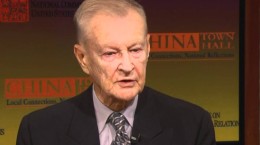From driverless cars to Internet on passenger jets to communication satellites, all depend on a broad spectrum of radio waves to meet their designed purpose effectively. The demands for allocation of such spectrum are potentially on the verge of another stage of exponential growth. The risk of interference is rising among competing interests defined by industry or border. To what extent though, could also the risk be coming from too much regulation and implicit efforts to control/censor substance as well as manage efficiency?
The 2015 United Nations World Radiocommunication Conference (WRC-15) is underway in Geneva. Many of the challenges to be addressed need international cooperation, if not regulation. According to the International Telecommunication (ITU) Secretary General Houlin Zhao, the Conference “will define new and better ways to regulate radio services and applications. In a world where radiocommunications play an increasingly important role in connecting people, I am convinced that the outcome of the conference will contribute towards making the world a better place for all.”
“Relentless Expansion”
“With the relentless expansion of wireless services worldwide, all services relying on radio waves are competing for a share of the radio-frequency spectrum to support new applications, growing user numbers and exploding traffic,” says François Rancy, Director of ITU’s Radiocommunication Bureau.
According to a UN Press Statement: “Some of the issues that the Conference aims to address are the provision of additional frequencies to meet the rapidly growing demand for mobile broadband communications; the allocation of frequencies for disaster relief or emergency communications; new allocations for monitoring the environment and climate change; and spectrum allocation for unmanned aircrafts, wireless avionics systems and global flight tracking for civil aviation. Further, participants will also discuss measures to improve road safety by allocating frequencies for short-range, high-resolution radars for collision avoidance systems in vehicles and enhance maritime communications systems by facilitating the use of on-board digital transmissions and automatic identification system on vessels for improved navigation safety.
“The deliberations at WRC-15 and its outcomes will ensure that we can maintain a stable, predictable and universally applied regulatory environment that secures long-term investments for a multi-trillion dollar industry,’ says Mr. Rancy.
Is Internet about Freedom or Commerce?
More recently, some countries have sought to present the choice between freedom and commerce, particularly those who have sought to control content. China has been relentless in seeking multilateral or bilateral arrangements, (as with recent visit of President Xi to Washington), to legitimize its agenda of greater regulations. However, if viewed within the context of China’s current standards, such really translates to censorship or even exclusion, as we evidenced by the blocking of Facebook, Twitter, Google and others.
The threat of terror has been also offered as rationale for ever tighter controls on the Internet in particular and communications in general. However, freedom is the best longer-term defense against the haters from within or outside our borders. Authoritarianism is a danger both to freedom but also the communications that have given birth to so many new forms of technological advancement related to health, commerce, science, citizen governance and freedom. Efforts to regulate should be focused on facilitating technology rather than controlling content. Is it a false option to present the choice of commerce or freedom. (See: “Come to the Virtual Atlantis!“)
Link to ITU Press Release:
More Stories: “Safer Internet for Children w/out Suffocating Freedom?” and “More Fertile E-Commerce Urged by UN“




